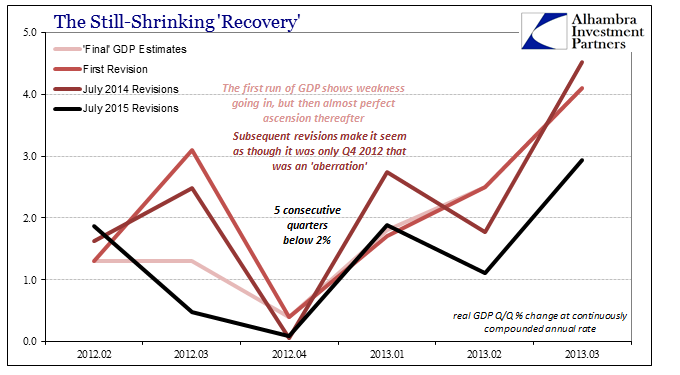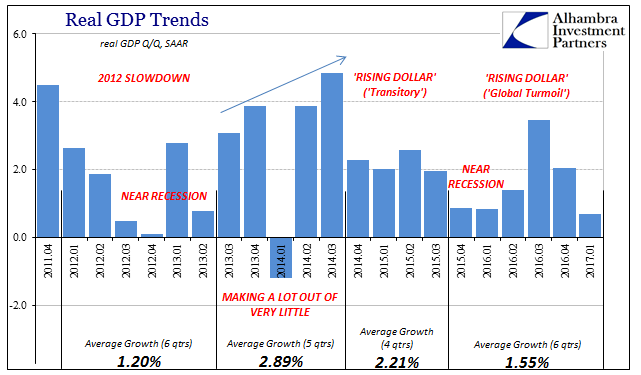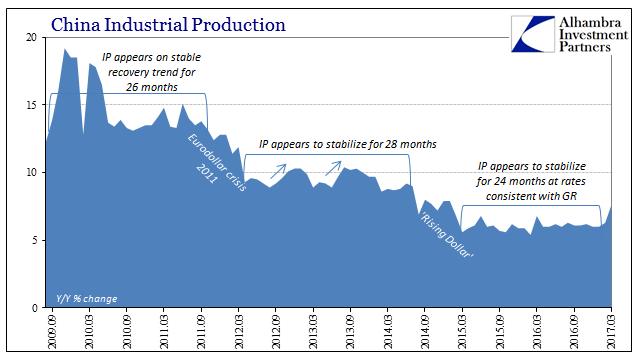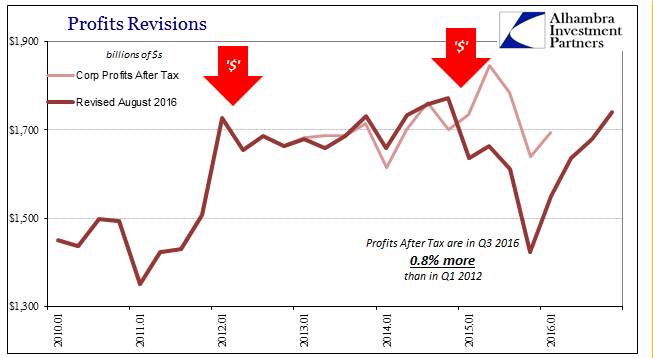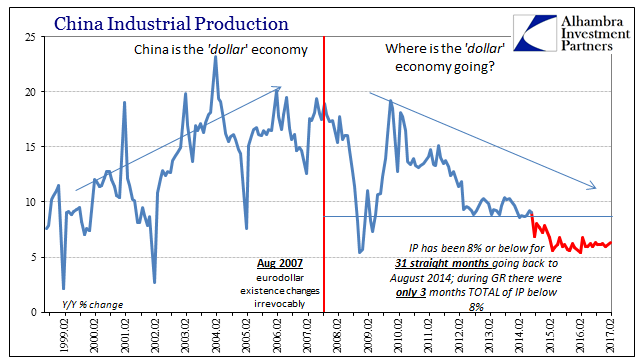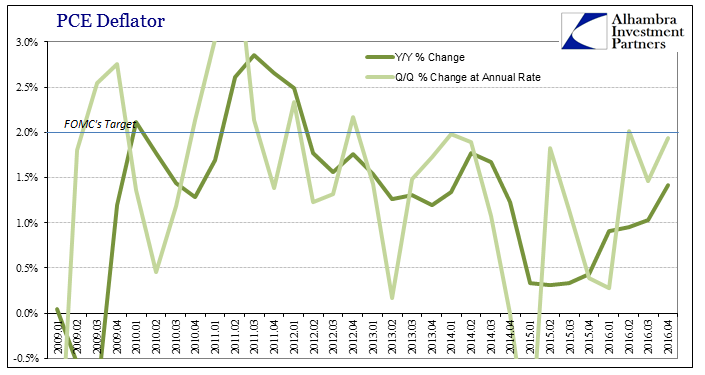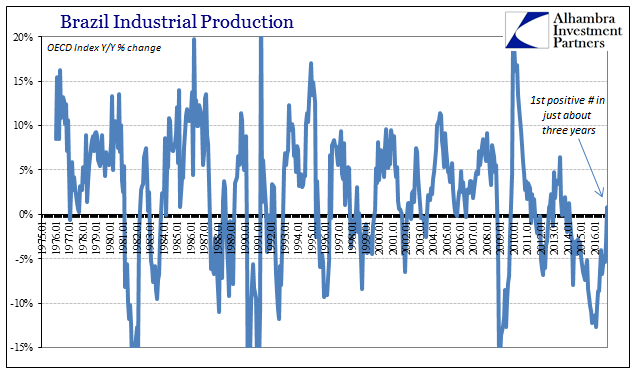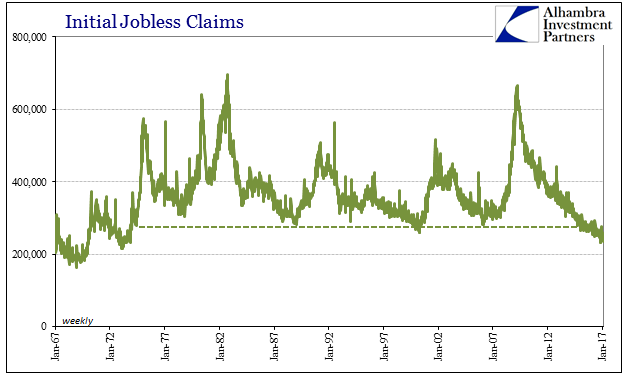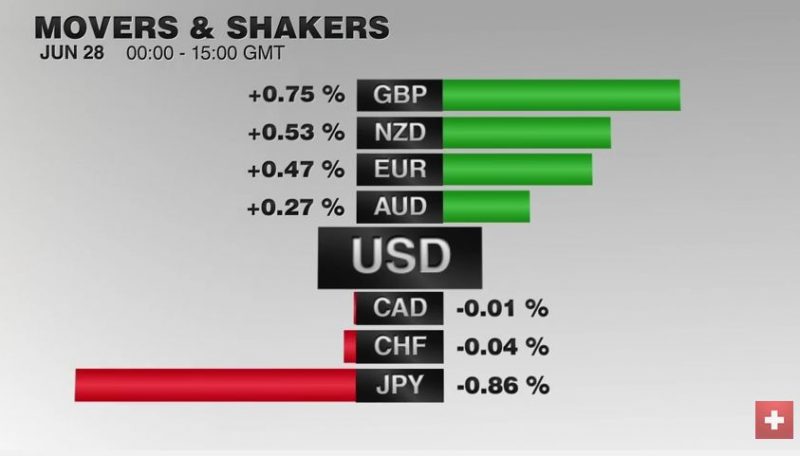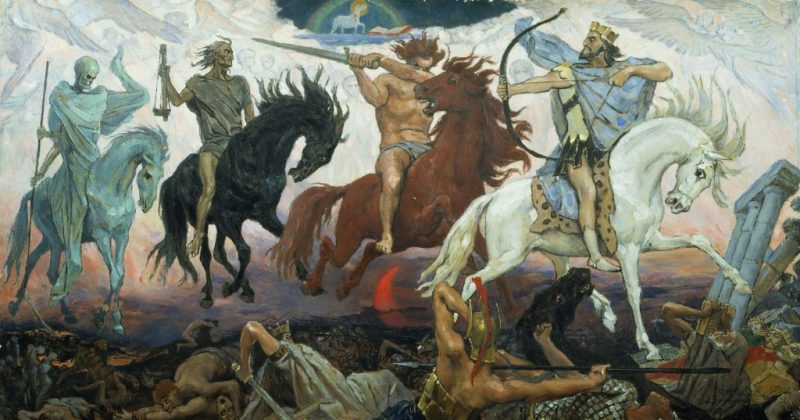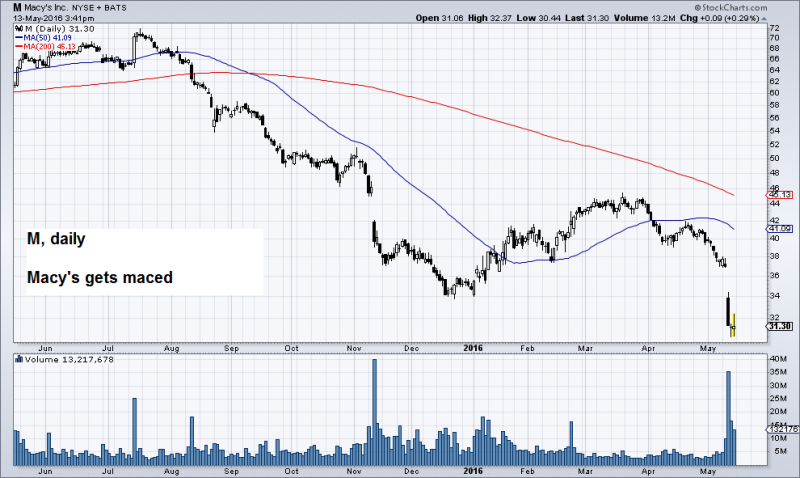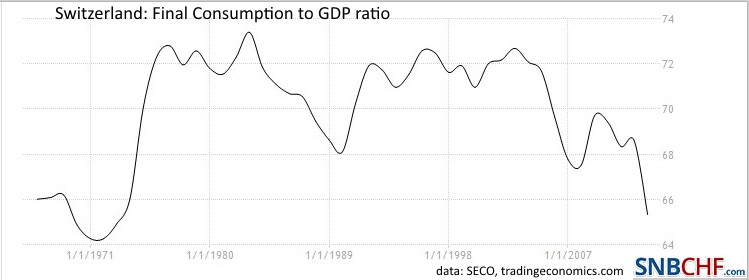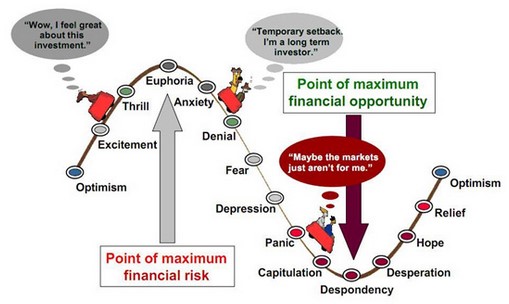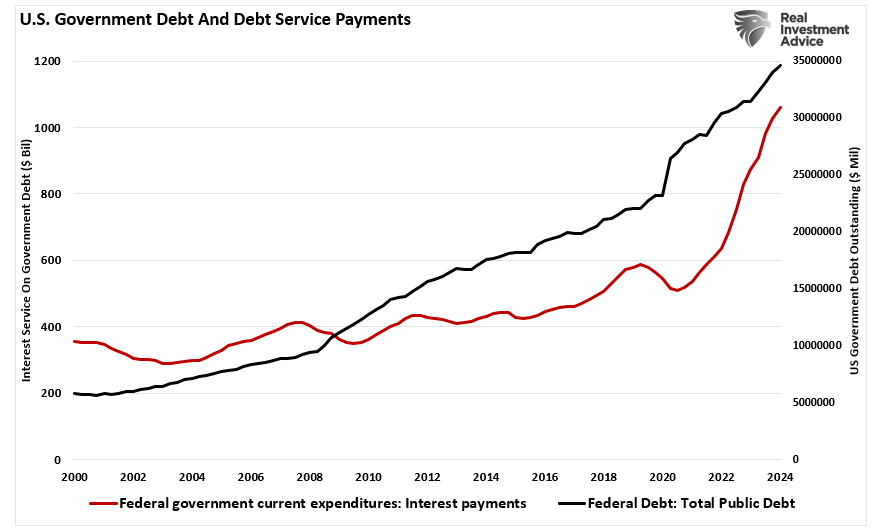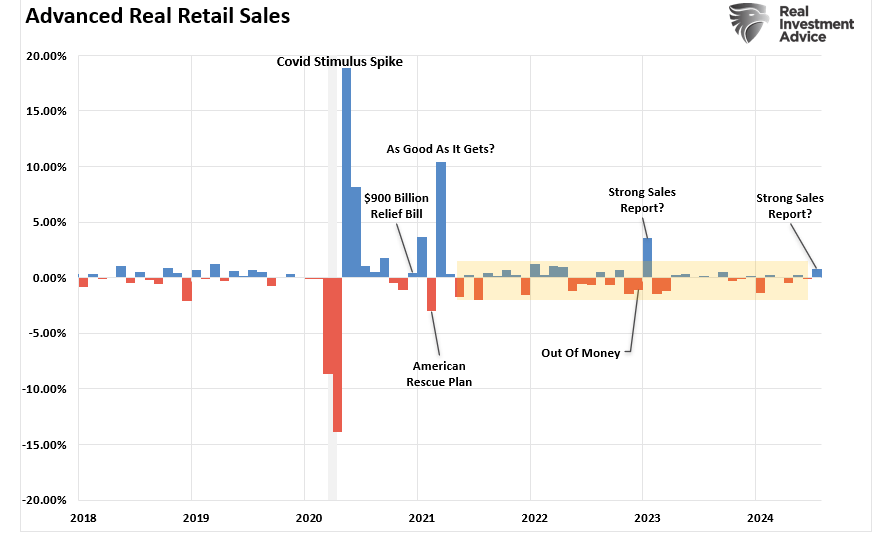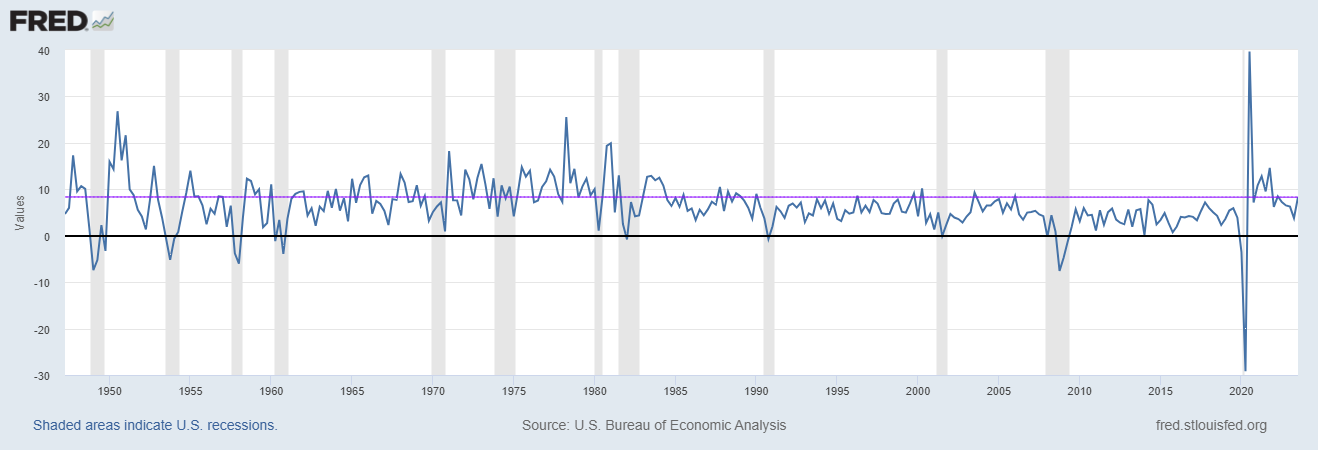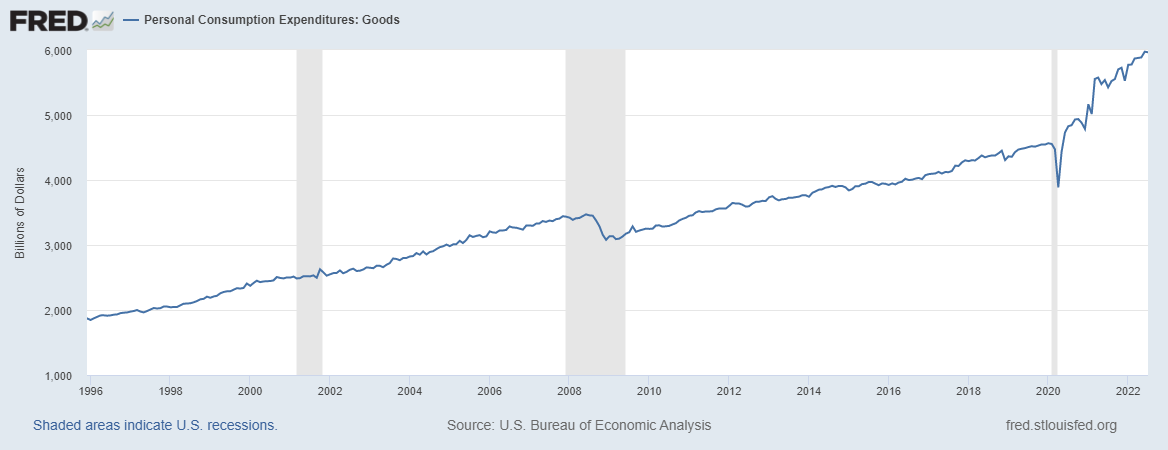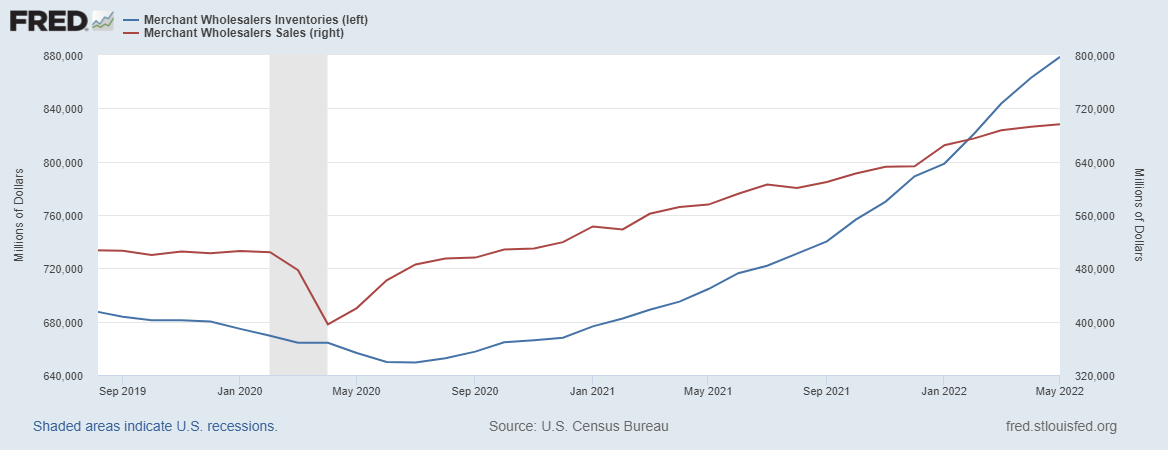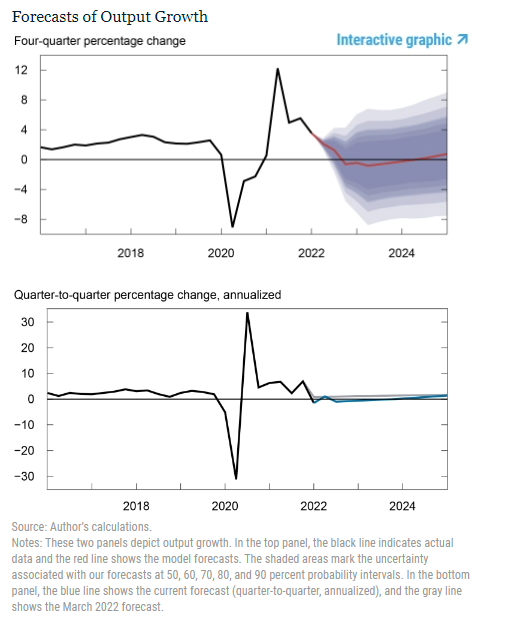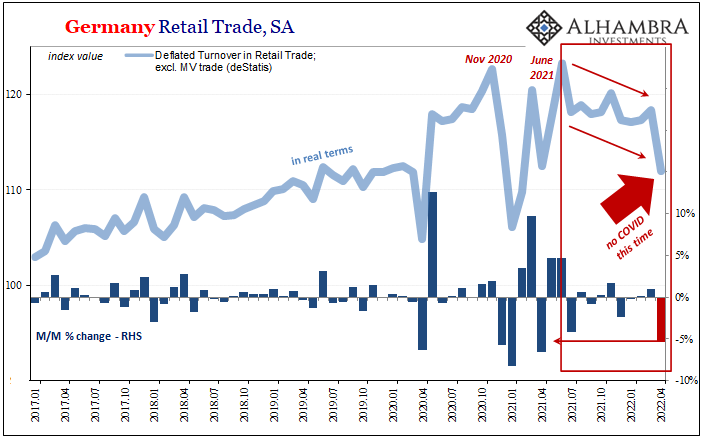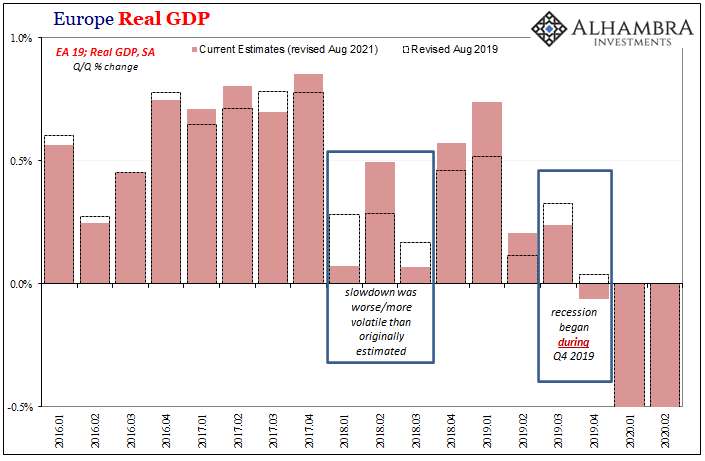Tag Archive: GDP
Great Graphic: Selected GDP Performance since 2008 and Policy
This Great Graphic was tweeted by Martin Beck, and it comes from Oxford Economics, using Haver Analytics database. It shows the relative economic growth since 2008 for the US, UK, Japan, and EMU.
Read More »
Read More »
Simple (economic) Math
The essence of capitalism is not strictly capital. In the modern sense, the word capital has taken on other meanings, often where money is given as a substitute for it. When speaking about things like “hot money”, for instance, you wouldn’t normally correct someone referencing it in terms of “capital flows.” Someone that “commits capital” to a project is missing some words, for in the proper sense they are “committing funds to...
Read More »
Read More »
Hopefully Not Another Three Years
The stock market has its earnings season, the regular quarterly reports of all the companies that have publicly traded stocks. In economic accounts, there is something similar though it only happens once a year. It is benchmark revision season, and it has been brought to a few important accounts already. Given that this is a backward looking exercise, that this season is likely to produce more downward revisions shouldn’t be surprising.
Read More »
Read More »
This Is Not Expansion
Back in October, the Bureau of Economic Analysis released GDP figures that suggested what those behind “reflation” had hoped. After a near miss to start 2016, the economy had shaken off the effects of “transitory” weakness, mainly manufacturing and oil, poised to perform in a manner consistent with monetary policy rhetoric.
Read More »
Read More »
Assessing China’s Economic Risks
First quarter GDP in China rose 6.9%, better than expected and above the government’s target (6.5%) for 2017. It stands to reason, however, that if Communist officials thought they could get 6.9% to last for the whole year they would have made it their target, especially since 6.5% would be less than the GDP growth rate for 2016 (6.7%). In only that one way is China’s GDP statistic meaningful.
Read More »
Read More »
Ending The Fed’s Drug Problem
Gross Domestic Product was revised slightly higher for Q4 2016, which is to say it wasn’t meaningfully different. At 2.05842%, real GDP projects output growing for one quarter close to its projected potential, a less than desirable result. It is fashionable of late to discuss 2% or 2.1% as if these are good numbers consistent with a healthy economy.
Read More »
Read More »
China Starts 2017 With Chronic, Not Stable And Surely Not ‘Reflation’
The first major economic data of 2017 from China was highly disappointing to expectations of either stability or hopes for actual acceleration. On all counts for the combined January-February period, the big three statistics missed: Industrial Production was 6.3%, Fixed Asset Investment 8.9%, and Retail Sales just 9.5%.
Read More »
Read More »
Some Notes On GDP Past And Present
The second estimate for GDP was so similar to the first as to be in all likelihood statistically insignificant. The preliminary estimate for real GDP was given as $16,804.8 billion. The updated figure is now $16,804.1 billion. In nominal terms there was more variation, where the preliminary estimate of $18,860.8 billion is now replaced by one for $18,855.5 billion.
Read More »
Read More »
Brazil: Continuing Problems
The cruelest part, perhaps, of this economic condition globally is how it plays against type. In all prior cycles, economies of all kinds and orientations all over the globe would go into recession and then bounce right of it once at the bottom. It was often difficult to see the bottom, of course, but once recovery happened there was no arguing against it.
Read More »
Read More »
Jobless Claims Look Great, Until We Examine The Further Potential For What We Really, Really Don’t Want
Initial jobless claims fell to just 234k for the week of February 4, nearly matching the 233k multi-decade low in mid-November. That brought the 4-week moving average down to just 244k, which was a new low going all the way back to the early 1970’s. Jobless claims seemingly stand in sharp contrast to other labor market figures which have been suggesting an economic slowdown for nearly two years.
Read More »
Read More »
Great Graphic: GDP Per Capita Selected Comparison
US population growth has been greater than other major centers that helps explain why GDP has risen faster. GDP per capita has also growth faster than other high income regions. The US recovery is weak relative to post-War recoveries but it has been faster than anticipated after a financial crisis and shows little evidence of secular stagnation.
Read More »
Read More »
Great Graphic: How the US Recovery Stacks Up
The US recovery may have surpassed the 2001 recovery in Q2. Though disappointing, the recovery has been faster than average from a balance sheet crisis. Although slow, it is hard to see the secular stagnation in the data.
Read More »
Read More »
FX Daily, June 28: Markets Stabilize on Turn Around Tuesday
The global capital markets are stabilizing for the first time since the UK referendum. It is not uncommon for markets to move in the direction of underlying trends on Friday's; see follow-through gains on Monday, and a reversal on Tuesday. That is what is happening today.
Read More »
Read More »
The Fed Doomsday Device
Debt is just the flip side of credit. As debt goes bad, credit disappears. And then the system that created so much credit-money will go into reverse, destroying the nation’s money supply.
The money supply (actually, the supply of ready credit) will shrink – suddenly and dramatically. And what should have been a minor, routine pullback in the economy will become a catastrophic panic.
Read More »
Read More »
The Power Elite: Bumbling Incompetents
Is there any smarter group of homo sapiens on the planet? Or in all of history? We’re talking about Fed economists, of course.
Not only did they avoid another Great Depression by bold absurdity…giving the economy more of the one thing of which it clearly had too much – debt. They also carefully monitored the economy’s progress so as to avoid any backsliding into normalcy.
Read More »
Read More »
Kuroda-San in the Mouth of Madness
Deluded Central Planners Zerohedge recently reported on an interview given by Lithuanian ECB council member Vitas Vasiliauskas, which demonstrates how utterly deluded the central planners in the so-called “capitalist” economies of the West have bec...
Read More »
Read More »
Retirement Torpedoes and Democracy
Bonner compares Total credit market debt, federal government debt and GDP – an economy running on debt, and now running on empty.
Read More »
Read More »
Swiss GDP 2014 +1.9%. Trade Surplus Contributed More than Half, Consumption Lagged
According to the figures of Swiss Statistics, the Swiss trade surplus rose by 10.4% in 2014. Therefore its contribution to the 2014 real GDP is higher than 50%. Private consumption lagged compared to the other components of Gross Domestic Product.
Read More »
Read More »
(12) FX Rates, Contrarian Investments and the Misleading Concept Called GDP
We extended our existing post to contrarian investing. It was published on Seeking Alpha and awarded the Editor's Pick.
Gross Domestic Product(ion) is (or has become) a measurement of activity and consumption, but not of capital accumulation and production.
In many cases, GDP growth is negatively correlated to saving. Higher savings (aka austerity) leads to lower GDP growth today, but to higher GDP in the future.
In its worst case, GDP growth...
Read More »
Read More »
Heterodox Economic Theories and GDP
Heterodox economic theories focus on the human desires to spend, to save, to obtain credit in order to anticipate spending and future earnings, to increase or to reduce debt or even to deplete existing savings, on human behaviour. Those theories neither think that humans are rational nor that markets are efficient.
Read More »
Read More »










